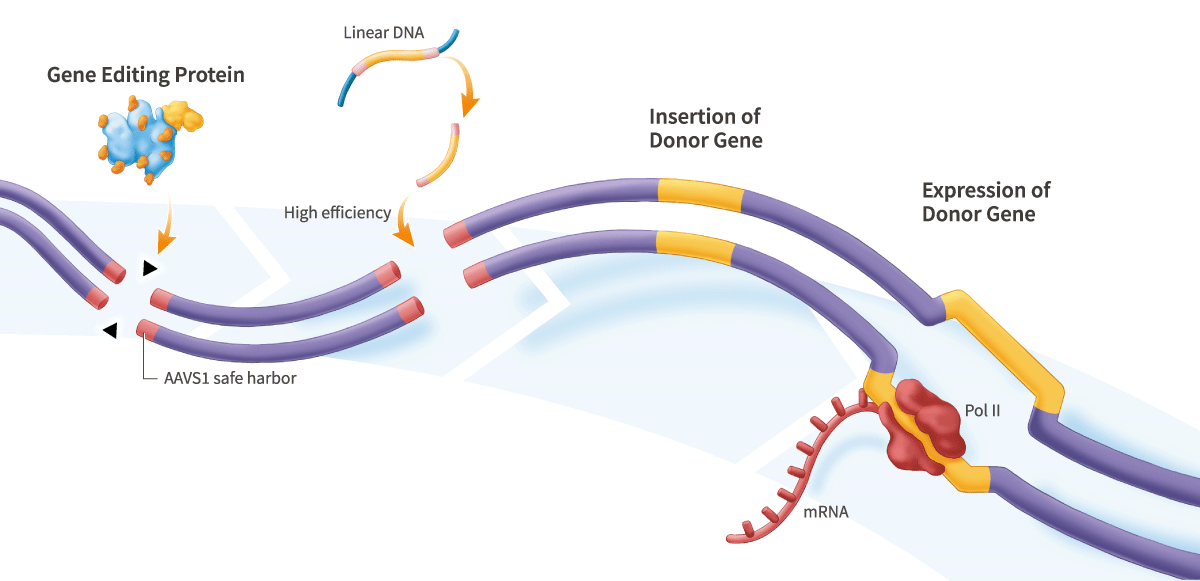End-Modified Linear DNA Donors
Download our Technology Catalog
Overview
Gene-editing proteins can be used to inactivate, repair, or insert sequences in living cells. Conventional approaches using plasmids or viruses to encode donor DNA sequences for insertion can result in low-efficiency insertion and unwanted mutagenesis when an exogenous nucleic acid fragment is inserted at random locations in the genome.
Our scientists developed a technology that uses end-modified linear DNA donors to enable high-specificity ontarget insertion8. This technology can be used, for example, to generate allogeneic CAR-T therapies for the treatment of cancer in which an end-modified linear DNA donor is used to insert a CAR sequence into a safe-harbor locus, and/or to generate allogeneic stem cell-derived therapies in which an end-modified linear DNA donor is used to insert a non-classical MHC class I sequence into the B2M gene to render the cells immunononreactive or “stealth.”
The End-Modified Linear DNA Donors technology is protected by a pending U.S. patent (with additional patents pending in other countries).
8Simpson, A., et al. Mol Ther, Vol 29, No 4S1, 2021.
Example Applications
- High-efficiency, high-specificity insertion of donor sequences into target genomic loci (e.g., TRAC, AAVS1 safe-harbor, etc.)
- Virus-free gene editing
- Gene repair using a DNA-repair template
- Gene-editing therapies (ex vivo and in vivo)
- Autologous and allogeneic engineered cell therapies (e.g., CAR-T, CAR-NK, stem cell-derived therapies, etc.)
- Combine with Factor’s ToRNAdo™ Nucleic-Acid Delivery System for high efficiency in vivo delivery